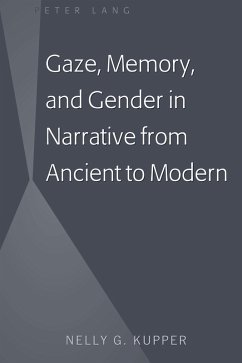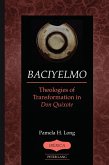This book examines the concept of the gaze in the context of narrative fiction. It argues that the gaze in fiction is a tractable factor, identifying the function of characters by way of the gender. The gaze variance and its connection to memory is not new to literary scholarship, but what has been overlooked to date is the fact that the divide exists along the line of gender. The dyad gaze-memory, provided by literary scholarship thus far is erroneous; what emerges instead is a triadic paradigm gaze-memory-gender. The gender divide is reflected in neuroscience, which shows memory processing in man and woman as respectively losing (forgetting) or retaining (remembering) vividness of detail. The discussion focuses on two narratives, one ancient (the Orphic cycle) the other modern (the novel Le Grand Meaulnes) to show that despite the presence of new narrative devices and conventions, the rules of the paradigm are preserved.
Dieser Download kann aus rechtlichen Gründen nur mit Rechnungsadresse in A, D ausgeliefert werden.
"Gaze, Memory, and Gender in Narrative from Ancient to Modern is a solid contribution to French studies, dealing with canonical texts, but it is also an ambitious project on a larger scale, which helps fill in some important gaps in our knowledge of the function of memory in fiction. What is particularly striking about this scholarship is the gender-specific dimension to the work, which explores whether women and men remember and represent memory differently. This book will reinvigorate the ongoing debate between social-constructivist and essentialist perceptions of how the brain and literature function in gendered contexts."-Bent Sørensen, President of the PsyArt Foundation; Associate Professor of Culture and Global Studies, Aalborg University, Denmark









